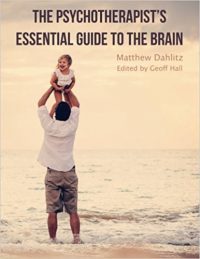In this course you will learn:
- What is epigenetics
- The various mechanisms for egigenetic change
- How the environment causes epigenetic changes
- About the importance of early childhood experiences
- How important psychotherapy can be for gene expression
- Why generational trauma can carry thorough in gene expression
Matthew Dahlitz is the Editor-in-Chief of
The Neuropsychotherapist magazine, a practicing psychotherapist, and author of the book
The Psychotherapist’s Essential Guide to the Brain. He sees clients in his private practice when he is not writing and editing for
The Neuropsychotherapist or working on other publishing and consulting projects.
Dr. Haley Peckham has Masters degrees in Philosophy of Cognitive Science (Sussex) and in Molecular Neuroscience (Bristol) and researched a mechanism of central nervous system neuroplasticity for her PhD at Melbourne Uni. She studied to be a nurse at the Florence Nightingale School of Nursing at Kings College (London) and has trained in psychotherapy. Haley is currently a lecturer at the Centre for Psychiatric Nursing at the University of Melbourne and Director of Phoenix Neuroplasticity.
Dr. Jonathan Baylin received his doctorate in clinical psychology from Peabody College of Vanderbilt University in 1981. He has been working in the mental health field for 35 years. For the past twenty years, while continuing his clinical practice, he has immersed himself in the study of neuroscience and in teaching mental health practitioners about the brain. He has given numerous workshops for mental health professionals on “Putting the Brain in Therapy” and has delivered keynote addresses internationally and nationally at conferences on childhood trauma and attachment. In 2016, Dr. Baylin received a lifetime achievement award from ATTACh, an international organization dedicated to education and training in the field of attachment disorders.
Several years ago, Dr. Baylin began a collaborative relationship with Daniel Hughes, a leader in the field of attachment-focused therapy and the developer of Dyadic Developmental Psychotherapy or DDP, a highly regarded model of treatment for maltreated children and their caregivers. Their first book, Brain Based Parenting, was released by Norton Press in the spring of 2012 as part of the Norton series on Interpersonal Neurobiology edited by Daniel Siegel, MD. In August, 2016, their second book, The Neurobiology of Attachment-focused Therapy, was released by Norton. Dr. Sue Johnson, Director of the International Center for Excellence in Emotionally Focused Therapy, wrote “This eminently readable, practical, and profound book is required reading for anyone who works with distressed children and their caregivers.”
In addition to the two books in the Norton Interpersonal Neurobiology Series, Dr. Baylin coauthored Working with Traumatic Memories to Heal Adults with Unresolved Childhood Trauma with Petra Winnette, published by Jessica Kingsley Press in 2016. In this book, Dr. Baylin contributed the material on the neurobiology of trauma and the neurobiology of therapeutic change in trauma-focused treatment with adults.
This self-study activity consists of 2 hours of continuing education, or professional development, instruction. Credit requirements and approvals vary across countries, organizations and state board regulations. Please save the test results at the end of each unit, the certificate of completion you receive from the activity and contact your organization to determine specific filing requirements.
We are unable to guarantee the success of logging 2 CE/PD points for this course as the requirements vary significantly across countries, states, and organizations.
All self-study participants will have to have achieved 80% or better pass rate to receive a certificate of completion. If you require a copy of the test/evaluation for CE purposes, please print at the time you take the test - these are available as a download after you complete each test section.






